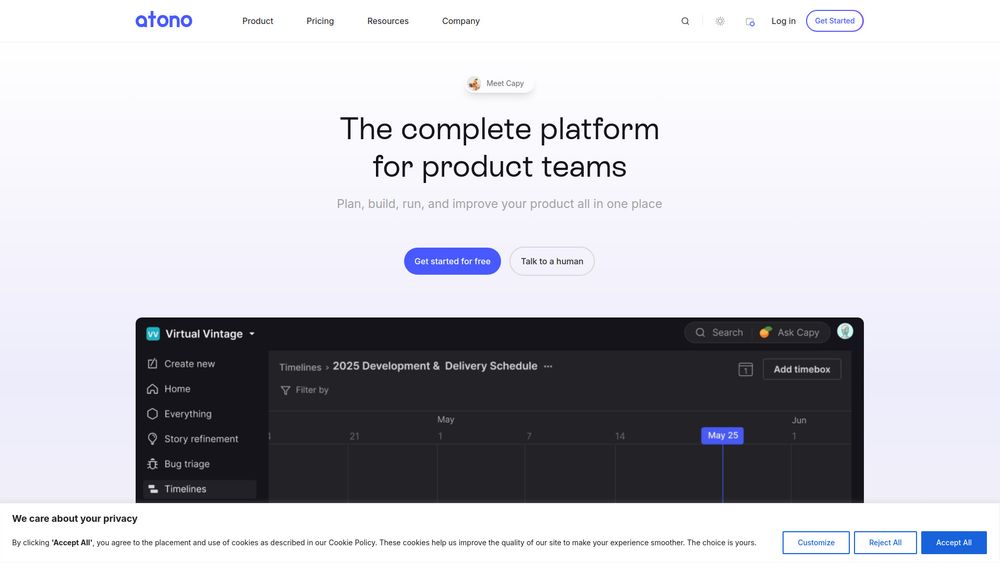What is Logic — Effortless Operational Magic
Logic is a platform designed to automate recurring decisions by converting plain English process descriptions into functional APIs. It eliminates the need for technical configuration, allowing users to simply write their process documents, with Logic handling the conversion, testing, and versioning of APIs.
How to use Logic — Effortless Operational Magic
- Describe Your Process: Write your decision or review process in plain English. You can also upload an existing Standard Operating Procedure (SOP).
- Logic AI Application: Logic's AI will interpret your plain English process and convert it into functional APIs.
- Automation: The system handles the conversion, testing, and versioning of these APIs, enabling automated decision-making.
Features of Logic — Effortless Operational Magic
- Plain English to API Conversion: Automates recurring decisions by converting natural language processes into APIs.
- No Technical Configuration: Eliminates the need for coding, API keys, model selection, or prompt engineering.
- AI-Powered Automation: Logic's AI interprets and applies user-defined processes consistently.
- Versioning and Testing: Built-in features for managing API versions and ensuring reliability.
- Document-Centric Workflow: Manage entire processes within documents, focusing on operational expertise.
- Enterprise-Ready Reliability: Offers versioning, testing, and rollback capabilities for secure and reliable APIs.
- Security: SOC 2 Type II certified with over 79 security controls in place.
- Integration: Connects with tools like Zapier, n8n, and other automation platforms via API calls.
- Web App Generation: Create interactive, shareable web applications from process descriptions.
- ChatGPT/Claude Integration: Access automations from AI tools like ChatGPT and Claude.
Use Cases of Logic — Effortless Operational Magic
- Product Listing Moderation: Automate the review of product titles and descriptions for policy compliance.
- Payment Dispute Resolution: Evaluate payment disputes, assign risk scores, and automate decisions (approve, review, deny).
- Lead Scoring & Qualification: Score leads based on firmographic fit, engagement, and intent to route them to the appropriate sales motion.
- Statement-of-Work (SOW) Review: Analyze SOWs to identify red flags, typos, unusual clauses, and provide negotiation recommendations from contractor or client perspectives.
- Expense Receipt Reconciliation: Match scanned receipts to expense report line items, categorize expenses, and flag exceptions.
- Automating Recurring Decisions: Apply business rules consistently to recurring tasks like moderation, dispute resolution, and lead qualification.
FAQ
Q: What is the primary benefit of using Logic? Logic automates recurring decisions by converting plain English processes into APIs, eliminating technical overhead and enabling faster deployment of automations.
Q: Do I need to know how to code to use Logic? No, Logic is designed for users to simply write their process documents in plain English, without requiring technical configuration or coding knowledge.
Q: What kind of processes can be automated? Any recurring decision or review process that can be described in plain English, such as product listing moderation, payment dispute resolution, lead qualification, and SOW review.
Q: How does Logic ensure reliability and security? Logic offers enterprise-ready reliability with built-in versioning, testing, and rollback. It is SOC 2 Type II certified and includes comprehensive security controls.




